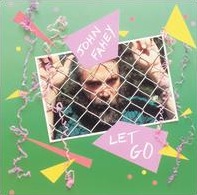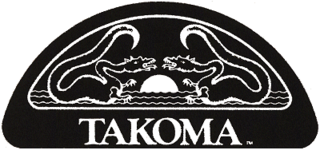
Takoma Records was a small but influential record label founded by guitarist John Fahey in the late 1950s. It was named after Fahey's hometown, Takoma Park, Maryland, a suburb of Washington, D.C.
Peter Lang is an acoustic guitarist who recorded for Takoma Records with John Fahey and Leo Kottke.

The Transfiguration of Blind Joe Death is a 1965 album by American fingerstyle guitarist and composer John Fahey. Originally issued in a hand-lettered edition of 50, it was Fahey's first album to be released by a label other than his own Takoma Records. As with all of Fahey's independently released early albums, it had little critical recognition upon release. The album has grown in stature since its reissue on CD in 1997 and is now highly regarded critically. It was Fahey's fourth album to see release, though after his fifth album, The Great San Bernardino Birthday Party & Other Excursions, was labeled Guitar Vol. 4, reissues of The Transfiguration of Blind Joe Death were subtitled John Fahey, Volume 5.

American primitive guitar is a fingerstyle guitar music genre, developed by the American guitarist John Fahey in the late 1950s. While the term "American primitivism" has been used as a name for the genre, American primitive guitar is distinct from the primitivism art movement.
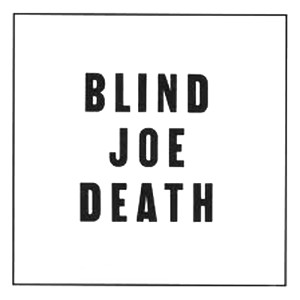
Blind Joe Death is the first album by American fingerstyle guitarist and composer John Fahey. There are three different versions of the album, and the original self-released edition of fewer than 100 copies is extremely rare.

Bola Sete was a Brazilian guitarist who played jazz with Vince Guaraldi and Dizzy Gillespie.

John Aloysius Fahey was an American fingerstyle guitarist and composer who played the steel-string acoustic guitar as a solo instrument. His style has been enormously influential and has been described as the foundation of the genre of American primitive guitar, a term borrowed from painting and referring mainly to the self-taught nature of the music and its minimalist style. Fahey borrowed from the folk and blues traditions in American roots music, having compiled many forgotten early recordings in these genres. He would later incorporate 20th-century classical, Portuguese, Brazilian, and Indian influences into his work.

Michael Gulezian is an American composer and fingerstyle guitarist. He is noted for dramatic compositions, a penchant for manipulating metre, an affinity for open tunings, and an unconventionally free two-handed technical approach. Gulezian's use of bottleneck slide on 12-string guitar, coupled with his command of reverse analog reverbs have made his recordings notable for their dream-like sonic atmosphere. Gulezian inhabits a musical territory between his mentor John Fahey and Gulezian's friend and colleague Michael Hedges.
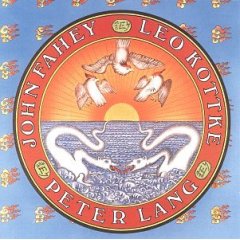
Leo Kottke/Peter Lang/John Fahey is a split album by American guitarists Leo Kottke, Peter Lang, and John Fahey, released in 1974.

The Best of John Fahey 1959–1977 is a compilation album by American fingerstyle guitarist and composer John Fahey, released in 1977. The songs are collected from four of Fahey's dozen or so releases up to that point.
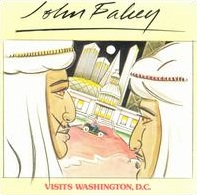
John Fahey Visits Washington D.C. is an album by American fingerstyle guitarist and composer John Fahey, released in 1979.

I Remember Blind Joe Death is an album by American fingerstyle guitarist and composer John Fahey, released in 1987.

God, Time and Causality is an album by American fingerstyle guitarist and composer John Fahey, released in 1989.

Old Girlfriends and Other Horrible Memories is an album by American fingerstyle guitarist and composer John Fahey, released in 1992. It also marked the end of an era for Fahey, who would soon be involved in a downward spiral in his personal life, health and career.

Rain Forests, Oceans and Other Themes is an album by American fingerstyle guitarist and composer John Fahey, released in 1985.

Live in Tasmania is a live album by American fingerstyle guitarist and composer John Fahey, released in 1981. It was his first live album release after 18 albums.

Railroad is an album by American fingerstyle guitarist and composer John Fahey, released in 1983. It was originally released as Railroad 1 by mistake. The Shanachie Records reissue is correctly labeled as Railroad. It was his last principal recording for Takoma Records, the label he founded in 1959.

Georgia Stomps, Atlanta Struts and Other Contemporary Dance Favorites is a live album by American fingerstyle guitarist and composer John Fahey, released in 1998. It was the second and last live album he recorded and released during his lifetime.

Ocean is an album by Brazilian guitarist Bola Sete, released in 1975 through Takoma Records.

Terry Robb is a Canadian fingerstyle guitarist, composer, arranger and record producer living in the United States. He plays electric and acoustic guitar, and is associated with the American Primitive Guitar genre through his collaboration with steel string guitarist John Fahey. He is a member of the Oregon Music Hall of Fame and Cascade Blues Association Hall of Fame, and was honored with the eponymous "Terry Robb" Muddy Award for Best Acoustic Guitar in 2011. His original compositions draw on the Delta blues, ragtime, folk music, country music and jazz traditions.
